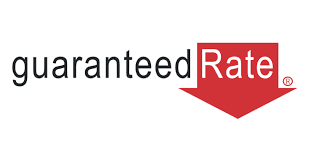Current Wisconsin Mortgage and Refinance Rates
Summary of the best mortgage lenders
Lender LendingTree rating and “best of” category Lender review


Refinance loansRead our review


VA loansRead our review


Jumbo loansRead our review


Online mortgage experienceRead our review


FHA loansRead our review


Home equity loansRead our review


Mortgage loan varietyRead our review
![]() Learn more about how we chose our list of the best mortgage lenders.
Learn more about how we chose our list of the best mortgage lenders.
The rules and costs of buying a home in Wisconsin
Wisconsin has its own set of regulations and taxes pertaining to homebuying in the state.
Home seller and buyer laws
Seller disclosures
In Wisconsin, home sellers must provide a “Real Estate Condition Report” to any prospective buyer within 10 days of accepting a sales or option contract. The report is a comprehensive accounting of the home’s known defects and covers a wide array of categories: structural and mechanical; environmental; wells and septic systems; taxes, special assessments and permits; and land use. There is additional information requested related to the sale of condominiums, including any fees or assessments. Sellers who do not own the property, such as trustees and conservators, are exempted from this law.
Foreclosure
Wisconsin is a judicial foreclosure state, which means that lenders cannot foreclose on a property without going through the court system. Lenders can also seek a deficiency judgment to collect any money that is still due after the home sale.
Marital property
Because Wisconsin is a community property state, marital assets — including all real estate — are owned jointly by both spouses. In a divorce, each individual can reasonably expect to retain 50% of property obtained during the marriage, although the court has the right to make changes to the distribution of assets depending on various personal and economic factors.
Attorneys at closing
Unlike several other states, Wisconsin does not require an attorney to be present during the real estate closing, although buyers may choose to have legal representation at their own cost. Buyers and sellers in this state work with an escrow officer, who is responsible for facilitating numerous aspects of the transaction, including handling any earnest money deposits, managing title services and reviewing all closing documents.
Taxes
A real estate transfer fee must be paid when a property changes hands in Wisconsin. The fee amounts to $0.30 for each $100 of value or a fraction of the remaining amount, and is typically paid by the seller.
On a $200,000 house, this would equate to $600. The mortgage lender is responsible for disclosing the precise amount of the transfer taxes due once a buyer identifies a property they wish to purchase.
The median property tax rate in Wisconsin is 1.76%, which works out to an average of $3,007 per year for a home worth the median value of $170,800, according to Tax-Rates.org. This is the the ninth-highest rate in the nation.
However, there is a huge variation across counties. Property taxes are highest in Dane County, in which the capital city of Madison is located, at an average of $4,149. The small, mostly rural Iron County has the lowest property tax in the state at $1,520.
Property tax exemptions can help make owning a home here more affordable, and Wisconsin offers several ways to take advantage of this money-saving measure. The state’s homestead tax credit can reduce the property tax burden with a maximum credit of $1,168 for qualified low-income residents.
Additionally, qualifying elderly homeowners can take advantage of a property tax deferral loan program that provides funds that don’t need to be repaid until they move out, sell or transfer ownership of their home. The Voluntary Income Tax Assistance program and Tax Counseling for the Elderly also offer income and property tax help.
Conforming loan limits
Wisconsin’s maximum conforming loan limit in 2019 for a one-unit property is generally $484,350. That ceiling rises to $726,525 in higher-cost counties.
Conforming loan limits are established by the Federal Housing Finance Agency (FHFA) and represent the maximum loan amounts for a mortgage under Fannie Mae and Freddie Mac. A loan through one of these government-sponsored enterprises can mean greater flexibility and easier approval guidelines for buyers. Borrowers who exceed conforming loan limits can take out a jumbo loan. However, these loans tend to have higher interest rates as well as tax consequences; interest deductions are currently capped at $750,000 of mortgage debt.

Programs for homebuyers in Wisconsin
Even though the state is more affordable than many others across the nation, buying a home in Wisconsin can still pose challenges. A number of programs in the state aim to help buyers achieve their dream of homeownership with discounted home prices, low down payments and down payment and closing cost assistance.
The Wisconsin Housing and Economic Development Authority (WHEDA) offers several loan programs for buyers in the state. While individual requirements may vary, WHEDA loans typically require a minimum 620 credit score. Here are the available options:
WHEDA Advantage Conventional Home Loan
The WHEDA Advantage Conventional Home Loan offers a 30-year fixed rate mortgage with a low down payment.
- Typical down payments are as low as 3%. An additional loan can provide down payment assistance and closing cost assistance.
- Loans are subject to the WHEDA Recapture Tax Reimbursement. Borrowers with WHEDA financing are reimbursed for recapture taxes paid to the IRS when they sell the home.
Who qualifies:
- Borrowers must meet income and loan limits, which vary by county.
- The property must be occupied as the owner’s primary residence for the life of the loan.
- This loan requires homebuyer education before purchase.
- Additional requirements exist for multifamily units or manufactured homes.
First Time Home Buyer (FTHB) Advantage
The FTHB Advantage loan is for first-time home buyers, veterans or buyers who purchase property in a federally designated target area.
- This loan offers a fixed-rate that is below standard conventional loan rates, however borrowers must be able to qualify for a conventional WHEDA Advantage loan.
- This loan is subject to the WHEDA Recapture Tax Reimbursement. Borrowers with WHEDA financing are reimbursed for recapture taxes paid to the IRS when they sell the home.
Who qualifies:
- First-time buyers must not have owned a principal residence for three years (waived for properties located in a federally designated target area).
- Income and loan limits vary per county.
- The FTHB requires education course prior to purchase.
Veterans Affordable Loan Opportunity Rate (VALOR)
This state-run program offers home loans with a reduced interest rate for qualified veterans. Funds are limited and available on a first-come, first-served basis.
- Fixed rates offered under VALOR are lower than the prevailing conventional WHEDA Advantage rate.
- Loans are subject to the WHEDA Recapture Tax Reimbursement. Borrowers with WHEDA financing are reimbursed for recapture taxes paid to the IRS when they sell the home.
Who qualifies:
- Loans are available to military veterans who have an honorable discharge or release.
- Borrowers must qualify for a WHEDA Conventional Advantage loan.
- There is no requirement to be a first-time buyer but first-time homebuyers must attend education classes.
- Income and loan limits vary per county.
WHEDA Tax Advantage
The WHEDA Tax Advantage offers money-saving tax credits to borrowers who are qualified for a WHEDA loan. This program reduces federal income tax liability by up to 40% of yearly mortgage interest for the life of the loan.
- The annual tax credit is 25% for non-federally designated target areas and 40% for target areas or qualified veterans.
- The maximum annual tax credit limited to $2,000.
Who qualifies:
- Income and loan limits vary per county.
- The property must be the borrower’s primary residence.
WHEDA's Capital Access Advantage
Formerly restricted to home purchases in high-housing-need areas in the state, this program is now available to all eligible buyers in the state for a limited time. It offers down payment and/or closing cost assistance.
- The program offers a 0% APR second mortgage with deferred payments. The loan does not need to be repaid until the first mortgage is paid in full.
- Offers immediate access to loan funds at the time of closing.
- Free access to home buyer education and credit counseling resources is provided.
Who qualifies:
- Borrowers must use a WHEDA Advantage mortgage.
- Income and price limits vary per county.
Easy Close Advantage
This 10-year loan is earmarked for down payment, closing costs and homebuyer education expenses for qualified borrowers using a WHEDA Advantage mortgage.
- The loan offers a fixed interest rate for 10 years with immediate access to loan funds at closing
- Funds amount to 3% of the home’s purchase price or $3,000 on a conventional loan, or 3.5% of the purchase price or $3,500 on an FHA loan, whichever is greater.
- The program offers free access to home buyer education and credit counseling.
Who qualifies:
Borrowers qualify for the Easy Close Advantage at the same time as the WHEDA Advantage mortgage and must use this mortgage in order to be eligible for the down payment assistance.
Income and credit guidelines apply.